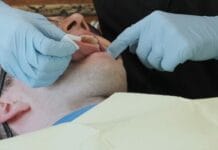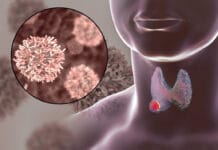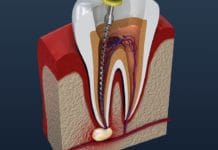In October 2021, an Illinois State Dental Society lobbyist, Dave Marsh, made the claim that dental hygienists were not “medically qualified to correct your health.”1 It was a bold claim from someone who seemingly, due to his position in the Illinois Dental Association, supports the bills sent to the state legislature that would allow dental assistants to scale supragingival on patients 19 years of age and under.2,3
I wrote an article highlighting concerns regarding public health and access to dental care in response to Dave Marsh’s stance. If you haven’t read that article, you can get up to speed by reading it here.
The legislation filed on January 13 suggest “a dental assistant who has completed specified training may perform coronal scaling.” In addition to the previously highlighted comments made by Marsh, he also stated, “it would be dangerous for hygienists to treat nursing home residents, who are often elderly and sick.” He cites the education level of some hygienists as an obstacle and implies the need for higher education to provide care that can improve patients’ health.1
An Insult to Dental Hygiene
Considering dental hygienists go through years of clinical and didactic coursework as well as national boards and state licensing to ensure they are competent to treat patients, one would believe they could be trusted to properly provide care to patients in a nursing home setting.
Though dental hygienists with a minimum of a two-year associates degree are somehow not sufficient, allowing dental assistants to treat our youngest patients without a license or a college degree is completely acceptable ‒ essentially proposing that being 19 and under does not entitle you to the same level of care as those that are older.
Only one state currently allows supragingival scaling by dental assistants. This clearly indicates that most states feel dental assistants are not trained and educated to perform such tasks. As a former dental assistant, I can assure you that in no way was I skilled enough to scale calculus off teeth in any capacity prior to clinical courses required in dental hygiene school.4
These bills are a slap in the face to every hygienist who put time, money, sweat, and tears into his or her education and training to become a master at a skill that many dentists themselves, admittedly, are incapable of performing.
What is included in this specified training for dental assistants? Will dental assistants be taught how to recognize and report domestic violence or human trafficking, as well as identify infectious and chronic diseases that manifest in the mouth? Will they be able to discuss and explain proper brushing techniques, tobacco cessation, nutritional counseling, and pharmacology regarding medications that cause oral disease? Finally, related to one of the hottest topics in dentistry today is: Will they be able to screen for airway issues that might contribute to sleep breathing disorders in children?
So many things go into a dental hygiene appointment that is often overlooked by dentists because the hygienist has already managed to educate the patient on their specific needs allowing the dentist to spend minimal time discussing disease prevention and causative factors.
The Value of Dental Hygienists
Scaling is a learned skill that requires proper instrument selection and proper adaptation to avoid tissue trauma, yet the least important part of the dental hygiene appointment, in my opinion. While these bills focus on a mechanical task, the real value of a dental hygiene appointment is being overlooked. The knowledge, rapport, and support dental hygienists offer through emotional quotient and cultural competence are important skills that keep patients coming back for future treatment and preventive care.
Patients deserve better than an “on-the-job trained hygienist.” They deserve a hygienist who understands their complex oral health needs. This is especially true for kids. Instead of requiring higher-level training and education, this will provide children with lower-level providers who may not fully grasp the patients’ needs and are unable to have a conversation with the parents regarding the best preventive measures.
The Illinois Dental Hygienists’ Association needs support from all hygienists. If these bills pass, it will set a precedent for other states to follow. In previous statements made by Dave Marsh and published in the Chicago Tribune, Marsh states “the problem is not a shortage of dental professionals but, rather, a lack of dentists who can afford to accept Medicaid patients.”5
This indicates the reasoning for allowing assistants to treat patients 19 and under may be due to financial gain on the part of the dentist and their practice and not due to a lack of dental providers. Paying assistant wages for dental hygiene services would improve profits.
This does not take the patient and quality of care into consideration; I sincerely hope this isn’t the main goal of the Illinois State Dental Society. However, it certainly seems to be a driving force if you consider Mr. Marsh’s previous statements.
Our patients deserve better. As licensed health care providers, we provide the level of care our patients deserve. Please join me and many other hygienists in reaching out to legislators and voicing your concerns regarding these legislative bills.
Need CE? Check Out the Self-Study CE Courses from Today’s RDH!
Listen to the Today’s RDH Dental Hygiene Podcast Below:
References
- Giles, B. (2021, October 19). Hygienists Brace for Pitched Battles with Dentists in Fight Over Practice Laws. Kaiser Health News. Retrieved from https://khn.org/news/article/hygienists-brace-for-pitched-battles-with-dentists-in-fights-over-practice-laws/
- Illinois General Assembly. Bill Status of SB3168. Retrieved from https://www.ilga.gov/legislation/billstatus.asp?DocNum=3168&GAID=16&GA=102&DocTypeID=SB&LegID=137907&SessionID=110
- Illinois General Assembly. Bill Status of HB4501. Retrieved from https://www.ilga.gov/legislation/billstatus.asp?DocNum=4501&GAID=16&GA=102&DocTypeID=HB&LegID=137957&SessionID=110
- Expanded Functions for Dental Assistants. (2011). American Academy of Pediatric Dentistry. Retrieved from https://www.aapd.org/assets/1/7/StateLawsonDAs.pdf
- Bruce, G. (2021, October 19). In a battle reflecting turf wars around the country, Illinois dentists helped defeat bills that would have allowed hygienists to practice in nursing homes and prisons. Chicago Tribune. Retrieved from https://www.chicagotribune.com/news/ct-illinois-dentists-hygienists-turf-war-20211019-t6tul5rjvrazbmjfuzc62355de-story.html












